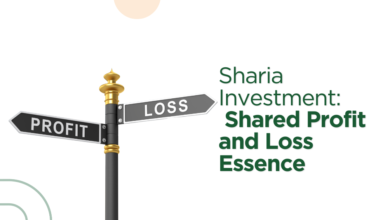Sukuk: A Solution for Companies from Debt
In the business world, corporate debt often serves as a tool to finance expansion and operations. However, excessive debt can burden companies with heavy financial obligations and increase the risk of bankruptcy. Failure to manage debt effectively can lead to credit rating downgrades, increased borrowing costs, and even insolvency. Therefore, it is crucial for companies to find safer and more sustainable financing alternatives. One increasingly popular solution among companies, especially in Muslim-majority countries, is sukuk.
Understanding Sukuk
Sukuk is a financial instrument that complies with Sharia principles, involving asset ownership and avoiding interest. Sukuk is often referred to as “Islamic bonds” because they offer a similar financing structure to bonds but with fundamental differences in mechanisms and operational principles. Unlike conventional bonds, which are debt-based, sukuk are asset-based and provide holders with a share of the profits or revenues generated by these assets. This makes sukuk a fairer and more ethical solution for companies wishing to avoid usurious practices.
How Sukuk Works
The mechanism of sukuk issuance involves several key steps. First, the company must identify assets to be used as the basis for sukuk issuance. These assets are then transformed into sukuk instruments that can be traded in the market. After that, sukuk is sold to investors who then receive a share of the profits generated by these assets.
There are various types of sukuk commonly used, including:
– Sukuk Ijarah: Based on a lease contract, where sukuk holders have the right to lease assets and receive lease payments.
– Sukuk Mudharabah: Based on a profit-sharing contract, where sukuk holders participate in projects and receive a share of the generated profits.
– Sukuk Musyarakah: Based on partnership, where sukuk holders invest in projects and receive a share of the profits according to their investment proportion.
Sukuk vs Conventional Debt
One of the main differences between sukuk and conventional debt is the nature of the financing. Sukuk is asset-based and provides holders with a share of the profits, while conventional debt is loan-based and must be repaid with interest. Here are some reasons why sukuk is safer and more beneficial for companies:
– No Interest (Riba): Sukuk does not involve interest, which aligns with Sharia principles and avoids the company from bearing high interest burdens.
– Risk Sharing: Because sukuk is asset-based, the risk is shared between the issuer and sukuk holders, reducing the burden of risk that the company must bear.
– Financial Stability: Financing through sukuk can enhance a company’s financial stability as there are no fixed interest payment obligations.
Benefits of Sukuk for Companies
Sukuk offers various benefits for companies seeking it as an alternative financing method. The reasons of that are:
Sharia-Compliant Financing Source
Sukuk provides a source of financing that aligns with Sharia principles, important for companies aiming to operate according to Islamic values. This allows companies to attract investors seeking investments that comply with their religious beliefs.
Better Risk Management
Because sukuk are asset-based, the risks associated with this type of financing are often lower compared to conventional bonds. Sukuk holders have ownership of the underlying assets, providing an additional layer of security.
Enhanced Company Reputation
Using sukuk can enhance a company’s reputation among investors and other stakeholders. It demonstrates the company’s commitment to ethical and sustainable business practices.
Sukuk offers an attractive solution for companies looking to avoid conventional debt and operate in accordance with Sharia principles. By using sukuk, companies can obtain fair and ethical financing while managing financial risk more effectively. Sukuk not only provides a safer and more sustainable alternative but also enhances the company’s reputation among investors and other stakeholders.
Also Read:Islamic Private Equity: What Contracts Are Used?

References
– Accounting and Auditing Organization for Islamic Financial Institutions (AAOIFI). (2017). **Sharia Standards**. Manama, Bahrain: AAOIFI.
– Islamic Financial Services Board (IFSB). (2018). **Islamic Financial Services Industry Stability Report**. Kuala Lumpur: IFSB.
– Khan, T. (2019). **Islamic Banking and Finance: Principles and Practice**. New York: Palgrave Macmillan.
– Usmani, M. T. (2002). **An Introduction to Islamic Finance**. The Hague: Kluwer Law International.




